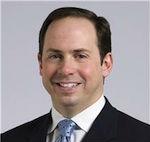 Breakout sessions at last week’s Lucian Leape Forum included Dr. Lucian Leape himself, Paul O’Neill, Former Chairman and CEO, Alcoa, 72nd Secretary of the US Treasury and more.
Breakout sessions at last week’s Lucian Leape Forum included Dr. Lucian Leape himself, Paul O’Neill, Former Chairman and CEO, Alcoa, 72nd Secretary of the US Treasury and more.
 Breakout sessions at last week’s Lucian Leape Forum included Dr. Lucian Leape himself, Paul O’Neill, Former Chairman and CEO, Alcoa, 72nd Secretary of the US Treasury and more. I had the long-awaited pleasure of hearing Paul O’Neill speak in person, during his breakout session entitled, Operationalizing, Disseminating and Implementing Joy & Meaning In Work and Workforce Safety, along with Julie Morath, RN, MS, President & CEO, Hospital Quality Institute of California. O’Neill’s unwavering standards and expectations in business, and for healthcare, have been an inspiration for many. Therefore, it came as no surprise that he seemed irritated with our progress to date, pulling no punches when asking the group how many of us in the room knew the real-time facts about injury to the people who do the work in our hospitals, and, did a system currently exist to provide that information with a 24-hour lapse? No one in the room raised a hand, and he shared that only 6/100 of a recent audience at which he spoke responded affirmatively to the same questions.
Breakout sessions at last week’s Lucian Leape Forum included Dr. Lucian Leape himself, Paul O’Neill, Former Chairman and CEO, Alcoa, 72nd Secretary of the US Treasury and more. I had the long-awaited pleasure of hearing Paul O’Neill speak in person, during his breakout session entitled, Operationalizing, Disseminating and Implementing Joy & Meaning In Work and Workforce Safety, along with Julie Morath, RN, MS, President & CEO, Hospital Quality Institute of California. O’Neill’s unwavering standards and expectations in business, and for healthcare, have been an inspiration for many. Therefore, it came as no surprise that he seemed irritated with our progress to date, pulling no punches when asking the group how many of us in the room knew the real-time facts about injury to the people who do the work in our hospitals, and, did a system currently exist to provide that information with a 24-hour lapse? No one in the room raised a hand, and he shared that only 6/100 of a recent audience at which he spoke responded affirmatively to the same questions.
“We’re too far away from this type of excellence,” following with a story that while at Alcoa, the company’s screen saver included real-time safety data. When a particularly concerning near miss appeared on his screen one day, O’Neill picked up the phone and called the team in Russia where it had occurred, asking for more information about what had happened. The personal attention to this near miss resonated throughout the organization, furthering the culture and behaviors that make organizations stronger. It’s this type of response and awareness to healthcare professional harm, as well as patient harm, that will move us to where we need to be.
“Why can’t we do this (in healthcare)?” was O’Neill’s resounding and animated challenge, many in the room knowing full well why we have not. Healthcare culture, leadership that says one thing but fails to support the necessary changes at pivotal moments, inertia–all of these however, are choices made by leadership. Either you’re in or you’re out.
Much of O’Neill’s breakout session was based on the LLI white paper, Through the Eyes of the Workforce, a must read for anyone serious about improving the quality and safety of care. Key takeaways from this breakout, as well as the summary session that followed, include:
- It will be very challenging to protect patients if we first can’t protect our own.
- The physical and psychological safety of our healthcare workforce is pivotal to ever improving the quality and safety of care.
- Real leadership is enabling not controlling.
- A leader’s first responsibility is to his/her people.
- Safety is not negotiable – it’s not a trade-off. You figure out how to pay for it. A pre-condition is that people who work ‘here’ will not get hurt.
- Habitually excellent organizations don’t “report” – they share information and act in a timely way when things go wrong.
- The response is key when people do share information. You can shut down a reporting culture in a heartbeat if you criticize someone for what/how/where they shared information.
- How would your healthcare workforce answer O’Neill’s 3 Questions: 1) Am I treated with dignity and respect by everyone each day? 2) Do I have what I need so I can make a contribution that gives meaning to my life? 3) Am I recognized and thanked for what I do?
We were reminded that it is hard to make a business case for healthcare professional safety, but data also shows that unhappy, un-empathetic, uninspired or unrecognized healthcare professionals directly impact the safety of patients, which directly impacts the “business case” in immeasurable ways. Too often, many in healthcare have observed our colleagues defend or excuse sub-optimal results, or continue to look the other way when observing behaviors that clearly are not in the best interest of colleagues or patients. O’Neill’s unwillingness to compromise standards or expectations is not only inspiring, those values created a company in Alcoa with a safety record that set the bar for his industry, as well as other high-risk care industries. O’Neill left the group with many pearls, but following is one that particularly resonated along with advice from the world of storytelling:
“Organizations are either habitually excellent or they’re not – there’s no in between,” said O’Neill.
“Do or not do, there is no try,” fictional sage Yoda advises via the story world of Star Wars.
It is time for healthcare to do differently.





